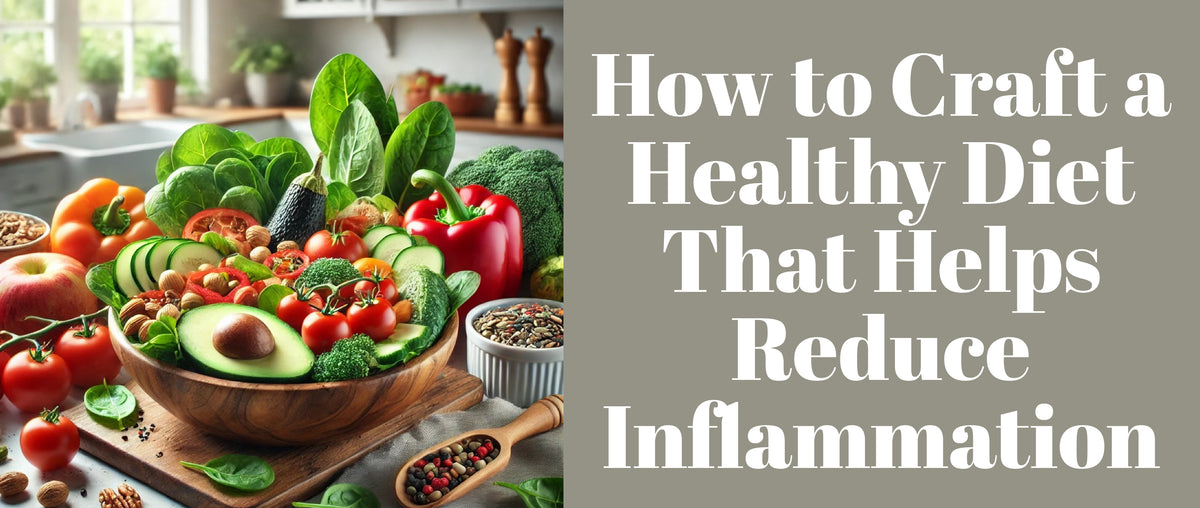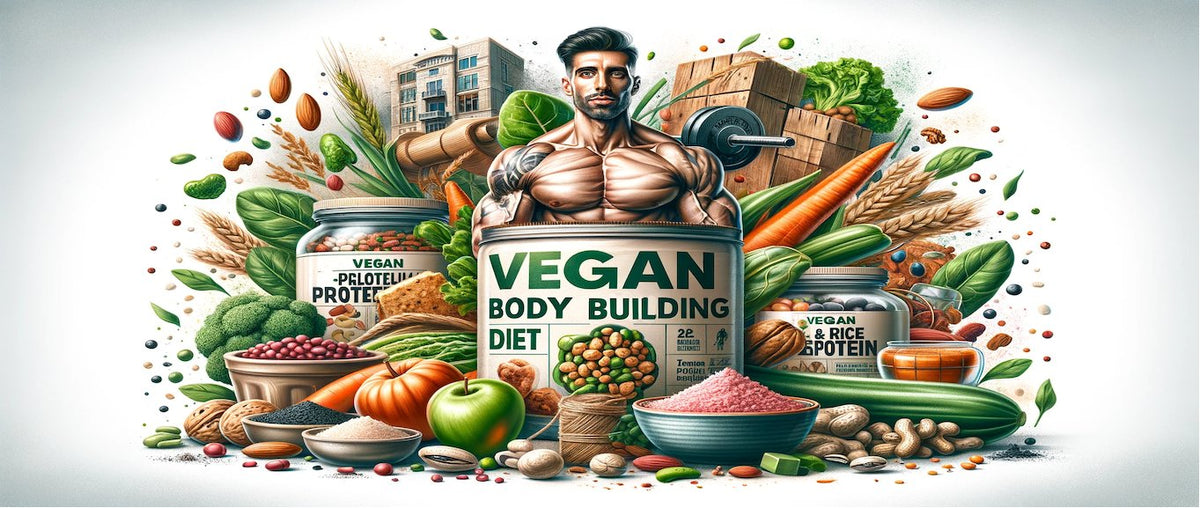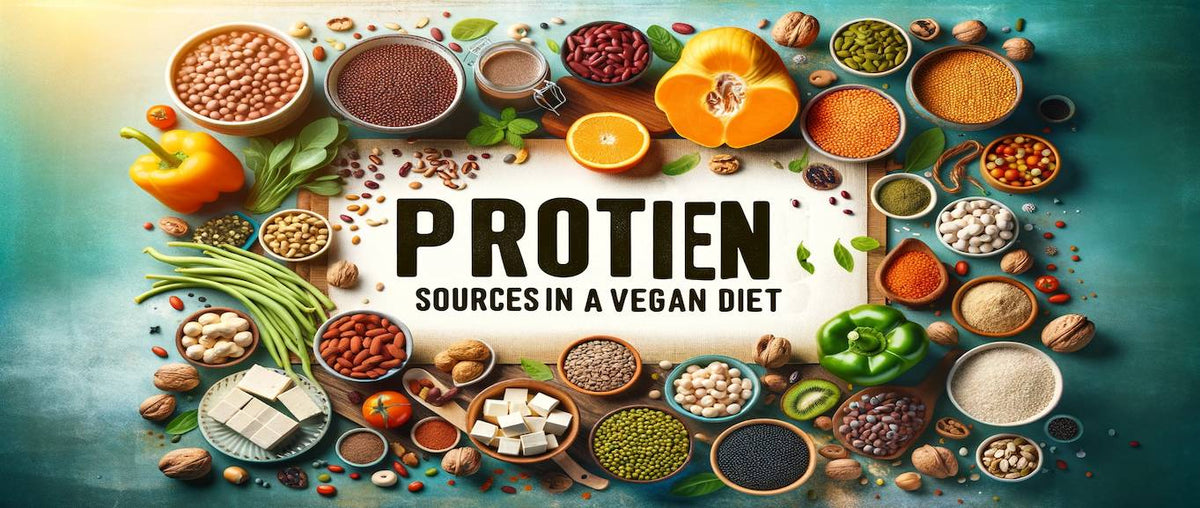How to Craft a Healthy Diet That Helps Reduce Inflammation
Inflammation is the body's natural response to injury or infection. However, chronic inflammation can lead to severe health issues like heart disease, diabetes, and even cancer. One of the most effective ways to combat chronic inflammation is through a well-crafted, healthy diet that emphasizes anti-inflammatory plant based foods. A diet rich in Vegan Cheese, Unsalted Butter, plant-based protein, and other cholesterol-free foods can significantly reduce inflammation and improve overall health.
In this comprehensive guide, we will explore the essentials of crafting an anti-inflammatory diet, focusing on foods that are both delicious and nutritious. Whether you're interested in a Vegan Bodybuilding Diet, looking for High Protein Vegan Breakfast options, or simply trying to integrate more healthy eating habits, this guide has got you covered.
Key Takeaways
- Focus on plant-based foods and reduce intake of processed and sugary foods.
- Include plenty of fruits, vegetables, and whole grains in your diet.
- Choose healthy fats like unsalted butter and olive oil over saturated fats.
- Incorporate plant-based protein sources such as cashew butter and Cheddar Cheese into your meals.
- Avoid excessive consumption of red meat, opting instead for vegan cheese and Oat Milk as nutritious alternatives.
Understanding Inflammation
What is Inflammation?
Inflammation is a critical part of the body's immune response, helping to fight off infections and repair damaged tissues. However, when inflammation becomes chronic, it can lead to a host of health problems. Chronic inflammation is often triggered by poor dietary choices, stress, lack of exercise, and environmental toxins.
Link Between Diet and Inflammation
Research has shown that diet plays a significant role in either promoting or reducing inflammation. Certain foods can exacerbate inflammation, while others can help reduce it. For example, diets high in sugar, refined carbohydrates, and unhealthy fats can lead to increased inflammation. On the other hand, a diet rich in plant based foods, such as fruits, vegetables, nuts, and seeds, can help reduce inflammation and promote overall health.
The Role of the Gut Microbiome
The gut microbiome, which consists of trillions of bacteria, plays a vital role in maintaining immune function and regulating inflammation. A diet high in fiber from whole grains and plant based foods can support a healthy gut microbiome, which in turn helps to reduce inflammation.

Key Dietary Components to Reduce Inflammation
1. Fruits and Vegetables
Fruits and vegetables are rich in antioxidants, which help to neutralize free radicals and reduce inflammation. Incorporating a variety of colorful fruits and vegetables into your healthy diet is essential for maintaining good health.
Key Foods:
- Berries (rich in anthocyanins)
- Leafy greens (such as spinach and kale)
- Cruciferous vegetables (like broccoli and cauliflower)
- Tomatoes (rich in lycopene)
Including these foods in your high protein vegan breakfast or as part of Healthy Snacks for Kids can be a delicious way to boost your intake of anti-inflammatory nutrients.
2. Whole Grains
Whole grains are an excellent source of fiber, which is essential for maintaining a healthy gut. Fiber helps to regulate digestion, control blood sugar levels, and reduce inflammation. Replacing refined grains with whole grains like oats, quinoa, and brown rice can significantly improve your overall health.
Key Foods:
- Oats (a staple for a high protein vegan breakfast)
- Quinoa (rich in protein and fiber)
- Brown rice (a versatile whole grain)
- Whole wheat bread and pasta
By choosing whole grains over refined grains, you can reduce inflammation and support a heart-healthy diet.
3. Healthy Fats
Healthy fats, particularly omega-3 fatty acids, are crucial in reducing inflammation. Omega-3s are found in foods like fatty fish, flaxseeds, and walnuts. However, for those following a plant-based diet, unsalted butter and vegan butter are excellent alternatives. These fats help to balance omega-6 fatty acids, which can promote inflammation when consumed in excess.
Key Foods:
- Flaxseeds and chia seeds
- Walnuts
- Olive oil and avocado oil
- Vegan butter (like cashew butter)
Incorporating these healthy fats into your healthy diet can help reduce inflammation and improve heart health.
4. Plant-Based Proteins
Plant-based proteins are not only good for the environment but also for your health. They are typically lower in saturated fat and higher in fiber compared to animal proteins, making them a great choice for those looking to reduce inflammation. Cashew butter, garlic butter, and vegan cheese are delicious options that can be included in various meals.
Key Foods:
- Legumes (such as beans and lentils)
- Nuts and seeds (like almonds and sunflower seeds)
- Soy products (such as tofu and tempeh)
- Vegan cheese and parmesan cheese
For those following a Vegan Bodybuilding Diet, incorporating these protein sources can help meet your nutritional needs while also reducing inflammation.
5. Herbs and Spices
Herbs and spices are potent anti-inflammatory agents that can add flavor and health benefits to your meals. Turmeric, ginger, and garlic are particularly effective in reducing inflammation.
Key Herbs and Spices:
- Turmeric (contains curcumin, a powerful anti-inflammatory compound)
- Ginger (great for reducing joint pain)
- Garlic (helps to boost the immune system)
- Cinnamon (a delicious spice that helps regulate blood sugar)
Adding these spices to your meals can enhance flavor while also supporting a heart-healthy diet.
Foods to Avoid
1. Refined Sugars
Refined sugars are one of the biggest contributors to chronic inflammation. High sugar intake can lead to increased production of inflammatory cytokines, which can exacerbate conditions like arthritis, diabetes, and heart disease. Avoiding sugary drinks, desserts, and snacks is crucial for reducing inflammation.
Key Foods to Avoid:
- Sodas and sugary beverages
- Pastries and sweets
- Sugary cereals and processed snacks
Instead of these inflammatory foods, opt for Healthy Drinks like Kombucha and Oat Milk, which can be part of a healthy diet.
2. Processed Foods
Processed foods are typically high in trans fats, refined sugars, and artificial additives, all of which can contribute to inflammation. Reducing your intake of processed foods and focusing on whole, plant-based foods is essential for maintaining good health.
Key Foods to Avoid:
- Fast food
- Processed meats (such as sausages and bacon)
- Packaged snacks (like chips and crackers)
Choosing plant-based snacks like cashew butter with apple slices or high protein snacks like a handful of nuts can help keep inflammation at bay.
Crafting a Balanced Anti-Inflammatory Diet
Sample Meal Plan
Creating a balanced, anti-inflammatory meal plan can help you integrate these healthy foods into your daily routine. Below is a 7-day meal plan that includes vegan butter, unsalted butter, and other cholesterol-free foods to help reduce inflammation.
Day 1:
- Breakfast: Oatmeal with berries and cashew butter.
- Lunch: Quinoa salad with leafy greens and vegan cheese.
- Dinner: Stir-fried vegetables with tofu and brown rice.
- Snacks: Almonds and Oat Milk.
Day 2:
- Breakfast: Smoothie with spinach, banana, and garlic butter.
- Lunch: Whole grain sandwich with parmesan cheese and avocado.
- Dinner: Vegan butter-roasted vegetables with quinoa.
- Snacks: Healthy Snacks for Kids like apple slices with cashew butter.
Shopping Tips
When shopping for an anti-inflammatory diet, it's essential to focus on whole, unprocessed foods. Reading labels carefully and choosing products with minimal ingredients is key.
Tips:
- Choose organic fruits and vegetables when possible.
- Opt for whole grains like oats and quinoa.
- Select unsalted butter and vegan butter for cooking.
- Include plant-based protein sources like cashew butter and vegan cheese.
Incorporating these foods into your healthy eating routine can help reduce inflammation and improve your overall well-being.

Lifestyle Factors Complementing an Anti-Inflammatory Diet
1. Regular Physical Activity
Exercise is a powerful tool in reducing inflammation. Regular physical activity helps to regulate immune function, reduce stress, and improve overall health. Whether it's a daily walk, yoga, or strength training, staying active is crucial for maintaining a healthy diet and well-being. Additionally, physical activity can complement a heart healthy diet by improving cardiovascular health and reducing the risk of chronic diseases associated with inflammation.
Exercise Tips:
- Cardio exercises: Incorporate activities like walking, running, or cycling to boost heart health.
- Strength training: Focus on building muscle, which can help reduce inflammation and support a Vegan Bodybuilding Diet.
- Flexibility exercises: Include yoga or stretching routines to enhance joint health and reduce inflammation.
2. Stress Management
Chronic stress can contribute to inflammation, so managing stress is crucial for maintaining a healthy diet and overall health. Practices such as meditation, deep breathing, and mindfulness can significantly reduce stress levels and support an anti-inflammatory lifestyle.
Stress Management Techniques:
- Meditation: Daily meditation can help calm the mind and reduce stress-related inflammation.
- Deep breathing exercises: Practicing deep breathing techniques can lower cortisol levels and promote relaxation.
- Mindfulness: Incorporating mindfulness into your daily routine can help you stay present and reduce stress.
3. Adequate Sleep
Sleep is essential for overall health, and it plays a vital role in reducing inflammation. Poor sleep can lead to increased production of inflammatory cytokines, which can exacerbate chronic conditions.
Sleep Tips:
- Establish a routine: Going to bed and waking up at the same time every day can improve sleep quality.
- Create a restful environment: Make your bedroom conducive to sleep by reducing noise, light, and keeping the room cool.
- Avoid stimulants: Limit the intake of caffeine and sugar before bedtime, which can disrupt sleep patterns.
Conclusion
Crafting a healthy diet that helps reduce inflammation involves making mindful food choices and incorporating lifestyle changes that support long-term health. By focusing on plant-based foods, healthy fats like unsalted butter and vegan butter, and avoiding processed and sugary foods, you can effectively reduce inflammation and improve your overall well-being.
In addition to dietary changes, incorporating regular physical activity, managing stress, and ensuring adequate sleep are essential components of an anti-inflammatory lifestyle. By making these changes, you can take control of your health and reduce the risk of chronic diseases associated with inflammation.
Do you enjoy vegan food? We have a list of vegan restaurants in India to help you find delicious options in your area!










